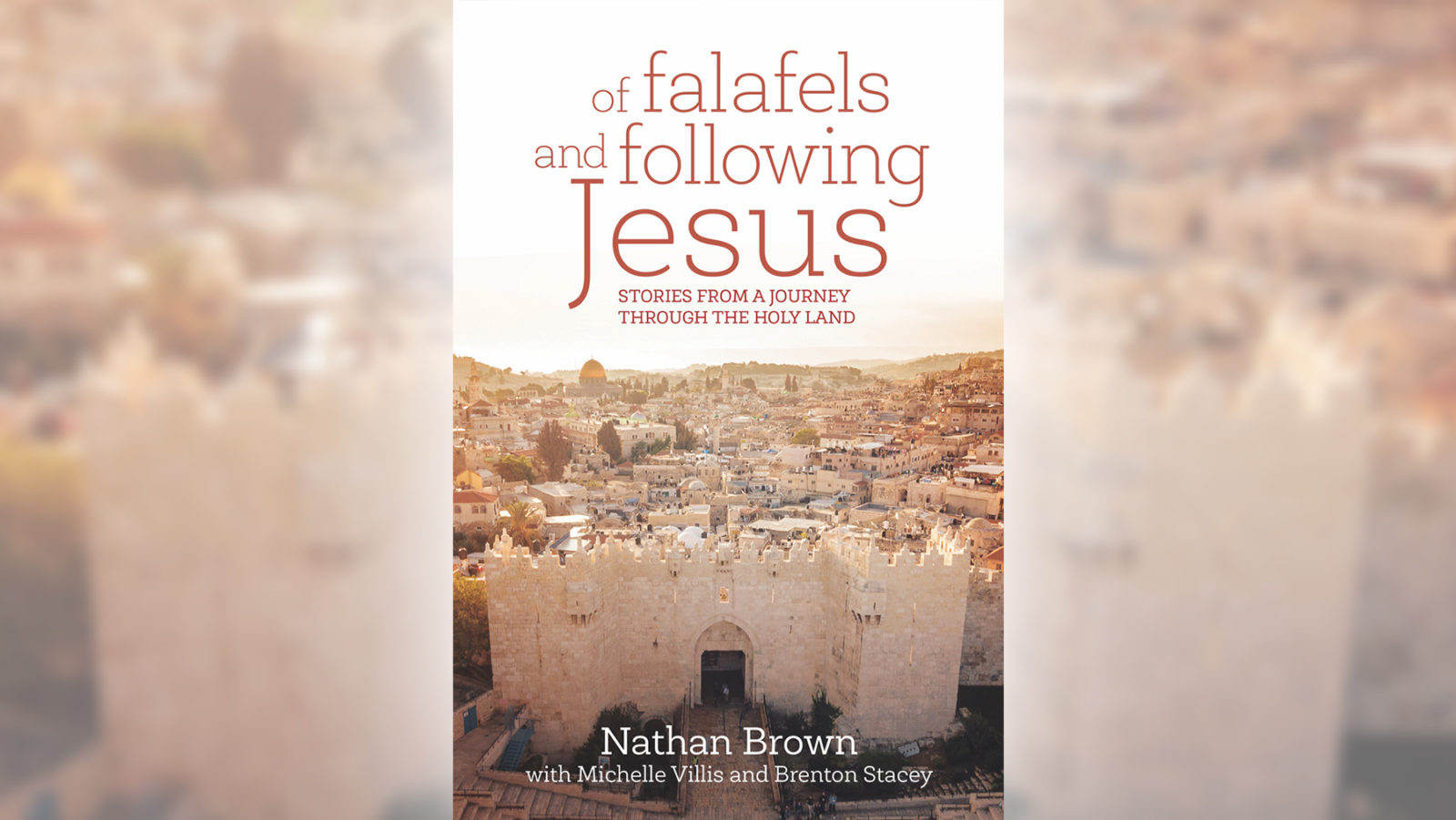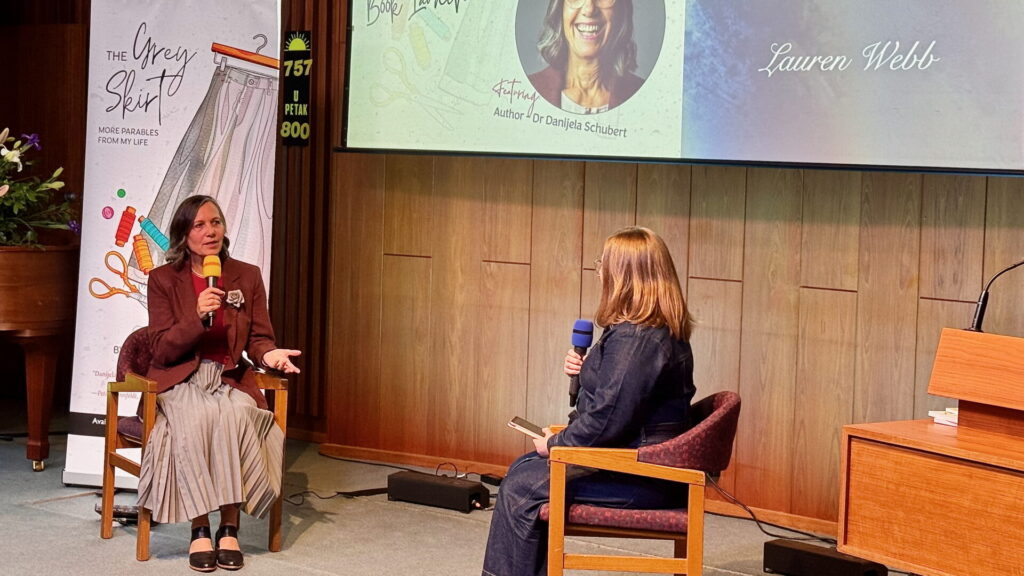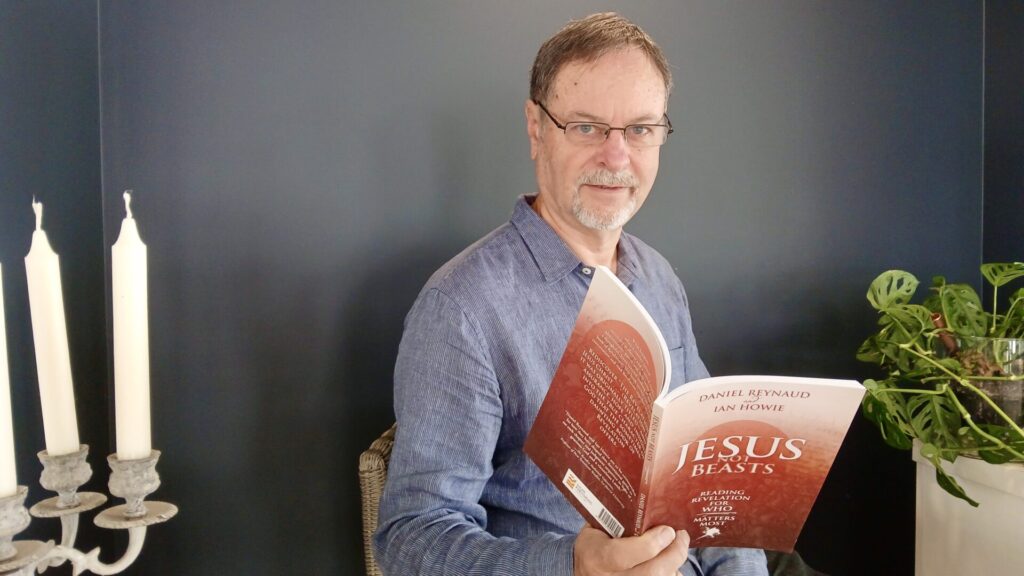Of Falafels and Following Jesus
Nathan Brown (with Michelle Villis and Brenton Stacey)
A few years ago, I was given the opportunity to take a subsidised trip to the Holy Lands. The offer was generous and I was tempted but found myself ambivalent about the prospect. I’m not a patient tourist at the best of times, so how would I deal with the noise, the crowds, the hawkers and visiting the “traditional” sites where Jesus “may” have been born or the last supper “might” have occurred? It all seemed a little too much to invest when, after all, Jesus doesn’t live there anymore.
But reading Nathan Brown’s latest offering, Of Falafels and Following Jesus, has given me pause. Brown outlines his aims for the book early on: it was conceived of and written to share the travel experience with people who will never make it to the Holy Lands; to revitalise the memories of those who have gone before; and for readers who, like me, are curious about what such a trip might offer—but not yet ready to take the leap.
The book is equal parts travel journal, devotional, history lesson and spiritual reflection, with a little bird-watching thrown in for good measure. And my experience of reading it was much like a pilgrimage itself—some sections resonate deeply, some are intellectually interesting, others practical and perhaps a little tedious, while yet others draw you into deep reflection as the writers’ musings plunge into raw and honest territory.
And yes, Of Falafels and Following Jesus has multiple authors: Brown invited two fellow travellers to reflect on the journey with him. The voices of Brenton Stacey and Michelle Villis offset Brown’s thoughtful but analytical—and occasionally cynical—voice, with some of their insights providing the emotional heartbeat of the book to balance Brown’s more intellectual, probing style. The downside of a multi-author, hybrid-genre book is that it can feel disjointed at times, with some chapters covering territory already explored. But the disruption is compensated by unexpected richness and diversity of experiences and viewpoints. Stacey’s unpacking of the term “gethsemane” is brief but compelling, while Villis’ reflections on worshipping in the midst of unapologetic patriarchy highlights the revolutionary nature of Jesus’ treatment of women—clearly a message still needed today. [pullquote]
But Brown is definitely the lead tour guide here. Those who are familiar with his writing will recognise his signature approach: descriptive but unpretentious prose that leads the reader through streets and tunnels, temples and tombs with a healthy dose of introspection and self-effacing humour. More importantly, though, Brown acknowledges the materiality of the Holy Land’s geography, politics and people, but his real gift is in finding the deeper realities: that holiness exists in moments, not places; that stories can be inhabited, not just told; and that following Jesus means journeying in perpetual paradox, where worship and the sacred are both “too much and never enough,” and “religion, even at its best, is only ever a mixed blessing.”
I’m glad to have taken the journey with Nathan and his friends through Of Falafels and Following Jesus. But has it changed my mind about braving the Holy Lands in the future? The answer is yes . . . and no.
Brown calls his readers to invest in this journey, but the good news is that you don’t have to leave home to do it. This is the implicit message of the book: that following Jesus into the Holy Lands can and should happen in our homes and our workplaces, from daybreak to dusk, by recognising that the sacred exists in time and community, in history and stories, rather than space and geography. Travelling to the Middle East requires time, money, planning, good guides and good health, but these are just shadows of the investment all Jesus-followers need to make daily, and intentionally, as disciples of Christ.
So Israel and Palestine are still not on my immediate list of places to travel. But if that ever changes, I consider myself forewarned: I won’t let the IKEA stores and Ecuadorian bananas throw me. This thoughtful and thought-provoking book will help any traveller—or armchair traveller—navigate an ancient land in modern times, reminding us to embrace its people, history, religions, and their many bewildering contradictions.
Dr Lindsay Morton is a lecturer in Literature Studies at Avondale College of Higher Education.
Of Falafels and Following Jesus is available from Adventist bookstores in Australia and New Zealand. The book is being launched this Sabbath, March 16, at Fox Valley Community Centre (Wahroonga, NSW, 2.30 pm) and Avondale College Church (Cooranbong, NSW, 7 pm). More information at www.FalafelsandFollowingJesus.com.






